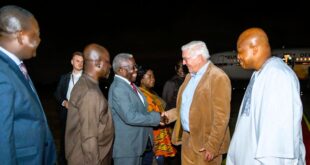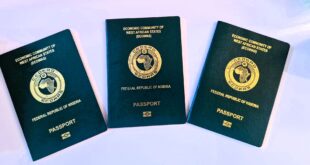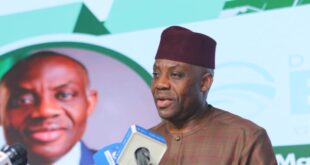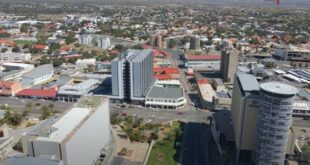The South Sudanese government has decided to deploy a regional force to protect civilians. The decision comes a month after fighting broke out between rival army factions and the release of a critical UN report.
Mahboub Maalim, head of the Intergovernmental Authority on Development in East Africa (IGAD), said on Friday (5 August) that the government had accepted a protection force “without any precondition,” speaking in Juba after a meeting of regional heads of state. The force will protect civilians and help implement a peace deal, he said.
Maalim said the timing of the deployment of the force will be determined after regional defence chiefs meet in the coming days, adding that the recently named first vice president, Taban Deng Gai, had agreed to step down if opposition leader Riek Machar returns to Juba.
Machar became first vice president under a peace deal reached in August 2015 but fled Juba after fighting began last month.
Damning UN report
The UN peacekeeping mission to South Sudan failed to protect civilians sheltering at a UN camp in the northern town of Malakal, where interethnic clashes broke out in February, according to a report by a UN board of inquiry released Friday.
The review found that the UN mission failed “at all levels … to manage the crisis effectively, leading to the negative effects of the incident.”
The inquiry also found that it was “highly likely” that the attack was planned or at least supported by the Sudan People’s Liberation Army (SPLA), which is aligned with the South Sudanese government.
The UN human rights chief said Thursday that South Sudanese security forces had killed and raped civilians in the latest fighting. Maalim, the IGAD chief, told reporters humanitarian corridors would be opened in South Sudan for the delivery of aid and investigations would be carried out to determine what caused the latest fighting.
South Sudan’s civil war began in December 2013 and has left tens of thousands dead. A peace deal reached last August has been regularly threatened by fighting.
Deutsche Welle
 THE AFRICAN COURIER. Reporting Africa and its Diaspora! The African Courier is an international magazine published in Germany to report on Africa and the Diaspora African experience. The first issue of the bimonthly magazine appeared on the newsstands on 15 February 1998. The African Courier is a communication forum for European-African political, economic and cultural exchanges, and a voice for Africa in Europe.
THE AFRICAN COURIER. Reporting Africa and its Diaspora! The African Courier is an international magazine published in Germany to report on Africa and the Diaspora African experience. The first issue of the bimonthly magazine appeared on the newsstands on 15 February 1998. The African Courier is a communication forum for European-African political, economic and cultural exchanges, and a voice for Africa in Europe.

































